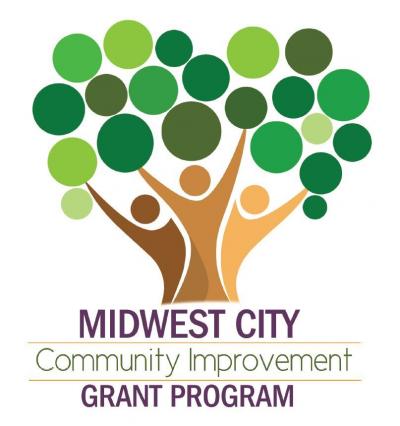Midwest City Community Improvement Grant Program
The History of the Midwest City Memorial Hospital Authority and the Implementation of a Community Grant Program
In 1961, the Midwest City Memorial Hospital Authority (the Authority) was created through actions by the Midwest City Chamber of Commerce (the Chamber) and the City Council of the City of Midwest City (the City). The Public Trust was created to finance, operate, construct, and administer hospital facilities. The City Council members assumed the title and role of Trustees for the Authority.
In the following years up until 1996, the Hospital Authority provided general oversight of the Midwest City Hospital. In 1996, the Authority leased the Midwest City Hospital to a private hospital company, Health Management Associates. The Authority received $46 million up front for the thirty-year lease.
Following this transaction, the Chamber, the City, and the Authority worked together to amend the Trust Indenture. In 1997, an Amended Trust Indenture was approved. The Amended Trust Indenture provided for the protection of the “Compounded Principal” should it be necessary to re-constitute the Hospital prior to the end of the thirty-year lease. In addition, it provided that community grants could be funded from the compounded principal’s earnings.
Since 1998, the Hospital Authority Trust, with the assistance of the Board of Grantors (BOG), has awarded 448 grants to community organizations and businesses, valuing nearly $10 million dollars.
The Midwest City Community Improvement Grant Program
The purpose of the Midwest City Community Improvement Grant Program is to improve the quality of life by funding effective projects that address the diverse issues and opportunities facing the Midwest City community.
The Fiscal Year 2024-25 grant year will open August 30, 2024 at 7:30 AM and will close to submissions on Friday, November 1, 2024 at 11:30 AM.
Per the Trust Indenture (click to view), grant funds are limited to non-reoccurring expenses. Funds may be used for such things as “…improvement to or enhancement of property [with] expected useful life of greater than twenty (20) years, but requests can be considered that include requests for property items that include technology or other software dependent property items that will aid the Beneficiaries; [an] …initial or single occurrence expenses or projects.” However, may not be “…used for or to replace or supplant any existing recurring operating expenses or personal property needs of the Beneficiary…such as maintenance…supplies, salaries…[or] general operating costs.”
Applicants are encouraged to demonstrate that they have identified an existing or potential need within the community, and have developed a reasonable and cost efficient method for addressing that need.
The BOG will only be accepting applications with one project or one business location defined. Under this project you may request multiple units of the same item; however, a request for multiple different items or events will not be considered. Applicants are always welcome to complete more than one application for separate projects or different business locations.
The Authority Trustees will hear the BOG recommendations for funding in February 2025, assuming there are no complications. Once the Authority Trustees have approved funding recommendations, Staff will begin the process of obtaining W-9 forms, and executed Recipient Agreements to disperse funds to recipients, who should expect checks in the mail approximately by the end of April 2025.
Fiscal Year 2024-25 Community Improvement Grant documents approved by the Hospital Authority Trustees and BOG: Grant Application, BOG Evaluation Form, Grant Recipient Agreement, and the Grant Outcome Form.
The BOG will score applications based primarily on the answers provided in “Part III: Project Overview” of the application with the most consideration given for the overall benefit and impact to the Midwest City community. In FY 2024-25, they will use this form: BOG Evaluation Form.
All applicants awarded grants must complete a Grant Recipient Agreement (Agreement). This Agreement shall be between the grant recipient and the Authority for the disbursement, utilization and accountability of any Authority funding awarded. The Grant Recipient must agree to use the awarded funds only for the specific purpose(s) and time period(s) stated in the grant application and Agreement.
As a public trust, the Authority is subject to the Oklahoma Open Records Act. Thus, all grant documents including the applications and their supporting documents may be public records. Finally, the Authority is required by the Internal Revenue Service to issue 1099 forms to all grant recipients; thus, grant funds received by an applicant may be taxable under the IRS Code.
As a reminder, it shall be considered unethical for an applicant to contact a Hospital Authority Trustee (Members) or Board of Grantor (Members) for the purpose of garnering favor for their grant and could result in disqualification of their grant application.

